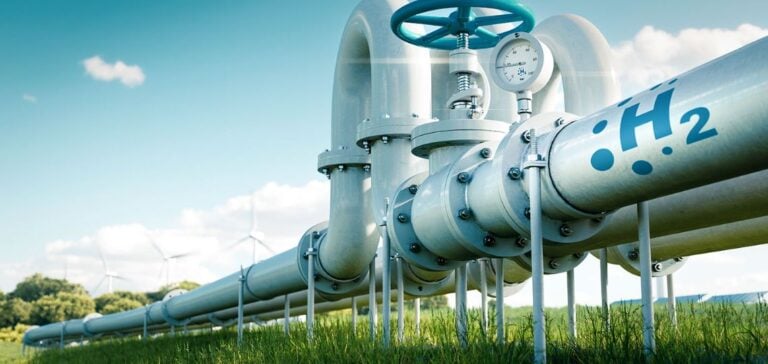Utility, a company specializing in gasification technologies, has signed an agreement with GH EnA, a South Korean energy sector player, to develop seven hydrogen production facilities in South Korea. These projects aim to provide locally competitive energy tailored to the needs of heavy transport and energy infrastructures.
A technological and commercial collaboration
The partnership relies on the H2Gen technology developed by Utility. This process allows for the direct conversion of biogas into hydrogen without the need for intermediate steps. This approach simplifies production stages, reduces capital expenditure (CAPEX), and optimizes the necessary infrastructure on the operational sites.
The facilities will be located in strategic regions, including Chuncheon, Taebaek, and Hongcheon, where they will supply commercial heavy vehicles, buses, and light vehicles. GH EnA is responsible for the management and development of these projects, while Utility provides the H2Gen reactors as well as the necessary technical support.
Sites adapted to local production
These projects utilize locally available biogas resources, such as those derived from wastewater treatment plants and livestock farms. The modular nature of the H2Gen technology enables flexible and scalable installations tailored to the specific needs of the regions involved.
H2Gen reactors also offer an operational advantage by limiting the space and complex infrastructure requirements compared to traditional technologies. According to data provided by Utility, this model integrates efficiently into local supply chains while addressing the growing demands of the South Korean market.
A strategy aligned with industrial priorities
These projects fit into an economic context marked by a desire to develop autonomous and diversified energy sources. South Korea, while aiming to limit its fossil fuel imports, is focusing on technological partnerships to strengthen the competitiveness of its energy and transport industries.
By collaborating with Utility, GH EnA relies on solutions adapted to the South Korean context, combining industrial efficiency and cost management. This partnership also marks a key milestone for Utility, which consolidates its presence in the Asian market by partnering with a major local player.






















